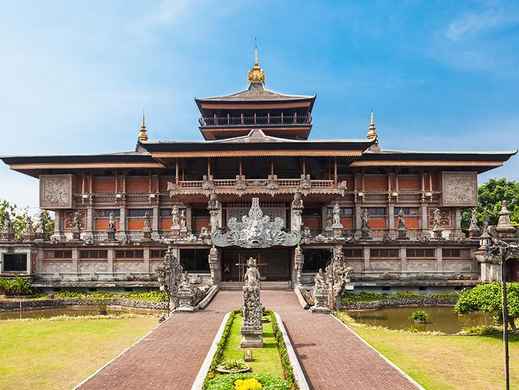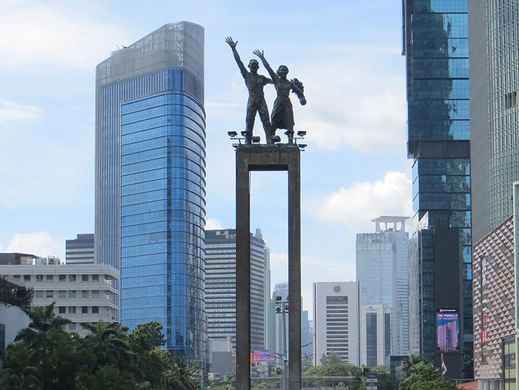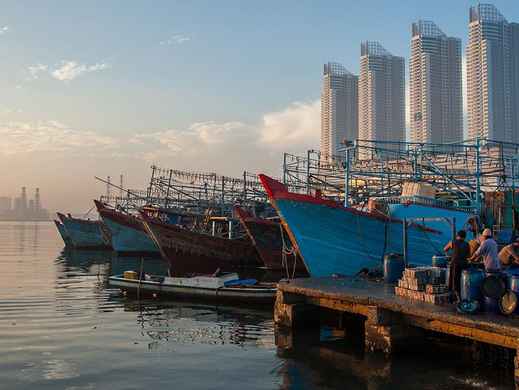


Bekasi
Asia
/
Indonesia
/
Bekasi
Located just to the east of Jakarta, Bekasi is a swiftly growing satellite city that beautifully exemplifies Indonesia's fusion of bustling urban vibes and historic culture. The vast city enjoys a tropical climate with well-defined wet and dry seasons, implying that October to April are usually rainy, while May to September has drier and sunnier weather.
The city vibrates with the pace of contemporary Indonesian living, where age-old Sundanese customs coexist alongside modern shopping complexes and tech startups. Despite the city's swift urbanization, the inhabitants of Bekasi, often called "Warga Bekasi," continue to foster robust community ties, giving birth to a distinctive ambience where traditional warungs (local eateries) are juxtaposed with international coffee shops.
What sets Bekasi apart is its character as a cultural melting pot, providing an opportunity to experience genuine Indonesian life away from the heavily toured places. The city is well-known for its traditional Betawi and Sundanese gastronomy, primarily Nasi Uduk Bekasi (coconut rice served with an assortment of side dishes) and Laksa Bekasi (a type of spicy coconut noodle soup). Ensure to visit the lively night markets, particularly around the Summarecon Mall area.
Two attractions that are a must-visit include the Grand Galaxy Park, a contemporary recreational space that provides an insight into the local lifestyle, and the Patriot Chandrabhaga Stadium, which regularly hosts thrilling soccer games and cultural festivities. Although the Museum Bekasi is small, it provides enthralling glimpses into the area's history and evolution.

Get to Know Bekasi
Take a tour of this destination's highlights
Popular Areas in Bekasi

Travel Tips for Bekasi
What you need to know before traveling here
Getting Around Bekasi
A guide to Bekasi's local transportation
Connected to Jakarta's bus network, TransJakarta offers budget-friendly transportation in dedicated lanes. A prepaid card can be purchased at any station, and services run from 5 AM to 11 PM daily. Announcements at stations are made in Indonesian and English.
Practical Tips for Bekasi
Things to prepare and best way to visit
Indonesian Rupiah (IDR) is the official currency. Money can be exchanged at authorized money changers situated in major malls or at banks. ATMs are widespread, but you should inform your bank before traveling.
Indeed, Bekasi is generally safe; however, always exercise normal safety precautions as you would in any other large city. Keep all of your valuables secure and be particularly vigilant in crowded areas and when using public transportation.
May to September offers the most favorable weather with less rainfall. It's best to avoid visiting in January and February, which usually see the heaviest rainfall.
English is less commonly spoken compared to Jakarta. Learning a few basic Indonesian phrases could be beneficial, but younger people and those working in malls and hotels often speak some English.
The local food scene is diverse and offers inexpensive options in warungs and food courts. Global cuisine is accessible in all the major shopping malls. Street food is popular and is best enjoyed from busy stalls with high turnover.
See All Practical Tips for Bekasi

Get to Know Bekasi

Travel Tips for Bekasi
More Destination Near Bekasi

















 Facebook
Facebook Instagram
Instagram TikTok
TikTok Youtube
Youtube Telegram
Telegram
